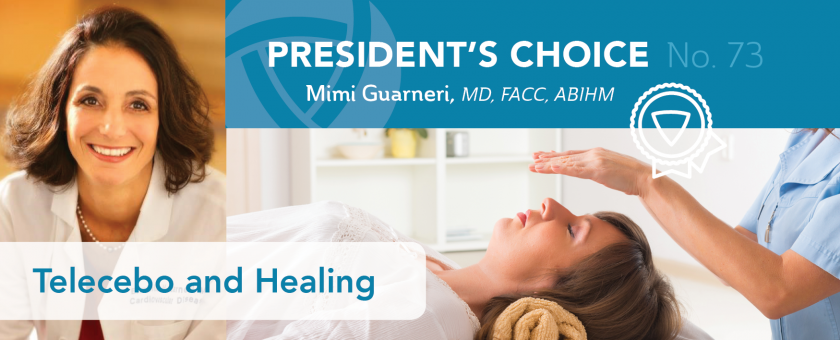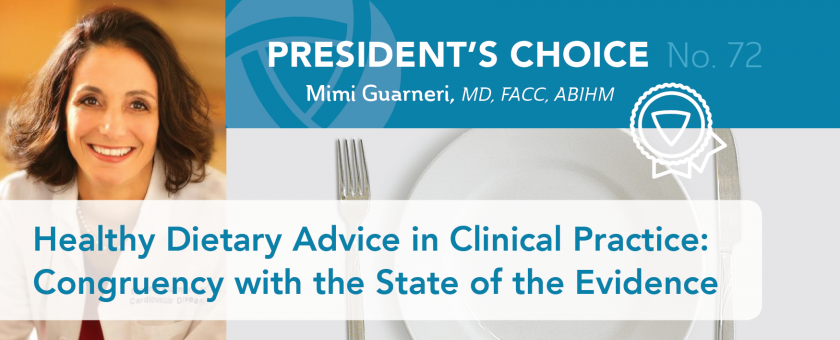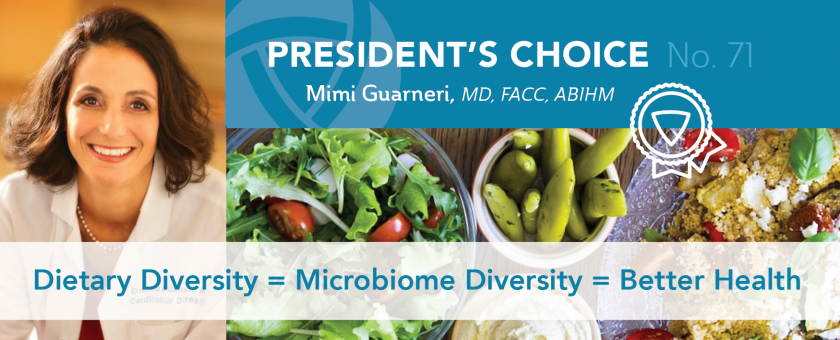
AIHM PRESIDENT’S CHOICE NO. 62: PHYSIOLOGICAL IMPACT OF HOSPITALIZATION
May 4, 2017
AIHM PRESIDENT’S CHOICE: MINDFULNESS PRACTICES DRAMATICALLY REDUCE HOSPITAL VISITS
May 4, 2017AIHM PRESIDENT’S CHOICE NO. 65: NICOTINAMIDE FOR CHEMOPREVENTION OF NONMELANOMA SKIN CANCER
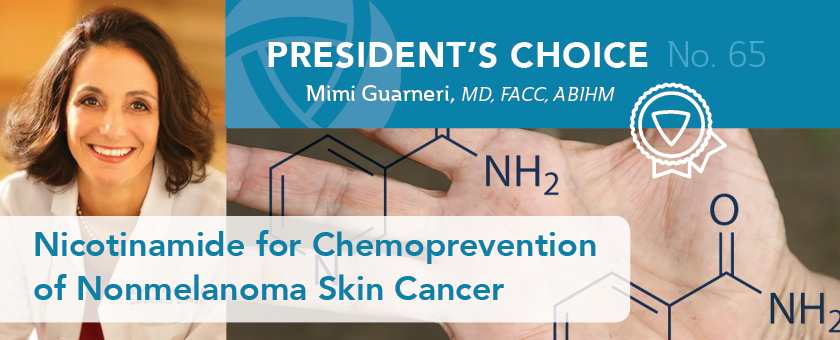
Nicotinamide (vitamin B3) for Chemoprevention of Nonmelanoma Skin Cancer
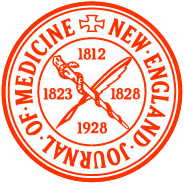 Though I prefer sharing full text articles with you, this New England Journal of Medicine preview offers enough detail that I think it’s worthy of a President’s Choice. I reviewed the entire article and hope you have access to NEJM, but if you don’t, here are the basics:
Though I prefer sharing full text articles with you, this New England Journal of Medicine preview offers enough detail that I think it’s worthy of a President’s Choice. I reviewed the entire article and hope you have access to NEJM, but if you don’t, here are the basics:
In their original article, A Phase 3 Randomized Trial of Nicotinamide for Skin-Cancer Chemoprevention, authors Andrew C. Chen, Andrew J. Martin, Bonita Choy, et al, conduct an elegantly simple study in which 386 actual participants who had had at least two nonmelanoma skin cancers in the previous 5 years received 500 mg of nicotinamide twice daily or placebo for 12 months. The primary end point was the number of new nonmelanoma skin cancers (i.e., basal-cell carcinomas plus squamous-cell carcinomas) during the 12-month intervention period. The study was a multi-center phase 3 double-blind, randomized, placebo-controlled design that followed two double-blind, randomized, placebo-controlled phase 2 trials in Australians with skin damage that revealed impressive results in the treatment arm.
The results:
At 12 months, the rate of new nonmelanoma skin cancers was lower by 23% in the nicotinamide group than in the placebo group. Similar differences were found between the nicotinamide group and the placebo group with respect to new basal-cell carcinomas and new squamous-cell carcinomas. The number of actinic keratoses was 13% lower in the nicotinamide group than in the placebo group at 12 months. No noteworthy between-group differences were found with respect to the number or types of adverse events during the 12-month intervention period, and there was no evidence of benefit after nicotinamide was discontinued. Nicotinamide was well tolerated, with minimal adverse effects and has a good long term track record of safety when used at 1500 mg/day for autoimmune blistering disorders.
Some considerations about the efficacy of nicotinamide:
The authors note that “nicotinamide is an amide form of vitamin B3 and the precursor of nicotinamide adenine dinucleotide (NAD+), an essential cofactor for ATP production. Nicotinamide prevents ATP depletion and glycolytic blockade induced by UV radiation, thereby boosting cellular energy and enhancing DNA repair. Nicotinamide also reduces the level of immunosuppression induced by UV radiation, which is triggered by DNA damage, without altering baseline immunity.”
Their conclusions:
“Among high-risk patients, nicotinamide was associated with a lower rate of new nonmelanoma skin cancers than was placebo and had an acceptable safety profile. Nicotinamide is widely accessible as an inexpensive over-the-counter vitamin supplement and presents a new opportunity for the chemoprevention of nonmelanoma skin cancers that is readily translatable into clinical practice.”
I appreciate this hopeful message, and am always heartened when a series of studies support the use of safe and seemingly effective preventive strategies that can be implemented by informed clinicians and patients.
Blessings on your journey,
Mimi Guarneri, MD, FACC, ABIHM
AIHM President

